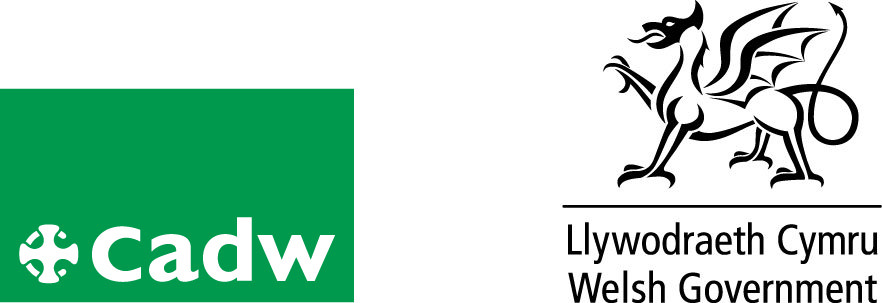Richard Gunter: apprentice 1668
by Dr G M Wakley
Richard Gunter couldn’t sleep. He was too excited, and too fearful, all at the same time. Now that he was turned fourteen, he would be away from that dull school at last. Tomorrow he would travel to Bristol by boat – and he had never been on a boat before. Other boys at school had joyfully told him of how sick he was likely to be on the choppy Severn Estuary. He wasn’t worried about riding all that way – he was used to having to ride with messages or papers to various relatives or clients of his uncle as far as Usk, or even sometimes, Caerleon.
His uncle, Thomas Gunter, was taking him to be apprenticed to a brewer and wine merchant in Bristol. His uncle, an attorney, had already explained (in too much detail, Richard thought) that a legal document would be signed together with the brewer. Richard would be signed over to this man for the next seven years to learn the trade. Thomas Gunter had emphasised that he would live with and be subject to the discipline of Master John Yeamans(1), and would be required to be sober (not going to any public house or inn), not to gamble or go to the theatre. And, of course, he would be expected to work hard.
Anything, he thought, would be better than going to school. When he had lived with his parents in Usk, he had learned his letters from a horn book and went to a little school with a few other boys. That had not been too bad. Warm and not too uncomfortable on a bench in the master’s front room, they had struggled with a little Latin and learning to read in English, difficult for some of the others who spoke in the Welsh dialect at home.
Then in 1662, when he was eight, his father had died, leaving some money to his guardian, his uncle, for his care. The will also specified that he should be apprenticed as a brewer – thank the Good Lord for that, or Thomas Gunter would have had him going to learn the law and become an attorney like him. He had to come to Abergavenny to live.
Mistress Gunter, who could read English, and keep accounts, had taken over his instruction with Thomas Gunter teaching him Latin until he was old enough to attend the King Henry VIII Grammar School. He had to go there from six in the morning to six at night in summer. In winter, the hours were seven to five and he had to take his own candle. He sat on a hard wood form with the other boys and it was always cold in there.
At first it was learning by rote the Latin texts from the Usher(2) and frequent beatings for all. When he had progressed a little, he had instruction in Latin grammar from the Master himself. He would come sometimes to Thomas Gunter’s house for meals and talk. The Reverend, as they called him, also taught Greek and Hebrew to some of the boys – those destined for the Universities.
What use was all that, thought Richard, to someone who was always going to be apprenticed as a brewer. It was more use to him to have learnt how to malt and how to store the ale, and how to order goods and keep accounts as he had done from Mistress Gunter. And the other boys at school gave him a hard time, knowing that his guardian was of the Old Faith – a Catholic. The other boys called Richard a traitor to the country and he often arrived home with dirty torn clothes after fights. Mistress Gunter just sighed and took his clothes away to be washed, but he took care to keep out of his guardian’s way, as he had a temper and could give him a good cuffing or even a beating if provoked.
Thomas Gunter often told him that he must learn to stand up for himself and fight when necessary for the Faith, as he did and his father had before him.
There were services at Gunter Mansion and priests often came to stay. Father David Lewis was a frequent visitor, coming to hold Mass, and to stay, while he visited the poor, the old and the infirm in the area. Richard liked him. He was always softly spoken, kindly and seemed to know how difficult life was for Richard at school. Richard supposed Father Lewis knew only too well what went on in King Henry VIII Grammar School, as his own father had been headmaster there before he died.
Richard thought that he was quite sturdy compared to some of the other boys and could hold his own in a one to one fight – but fights after school never were. He had grown well with the good food provided in Thomas Gunter’s house, although it often had to stretch to accommodate an extra mouth as someone came to seek out one of the priests or ask for legal advice from afar.
When he was not at school, he worked in the garden, digging, weeding and fetching in crops, and helped with the pigs, especially when they had to be gelded or slaughtered for food. But best of all was helping make the beer and ale with Mistress Gunter. It was warm in the brewhouse and, although strict, she was also kind and treated him like a son. And he saw how she worried over the money, having to provide for so many other mouths at meal times, giving money to the poor, giving money to the priests, so that often she could not pay for the bills that were presented by the tradesmen. Well, he wouldn’t have to worry about any of that for many years. His board and lodging would be provided by Master Yeamans and he was just hoping he was not too hard a taskmaster.
But to go to Bristol! That was exciting. To go to such a big city where there were so many people, so many traders, a big port with ships travelling from all over the world calling with goods like wine, salt and olive oil and taking away the wool and hides that were produced here. Tobacco and sugar would be coming in as well, as it did at Caerleon. Some of the boys had told him that he must keep away from the port or he might be caught and made into a sailor – Thomas Gunter would not be pleased if that happened after he had paid for him to be apprenticed. He could hardly wait until it was dawn and they could set out.
Footnotes
(1) The Yeamans family were merchants and represented by several Freemen of the City of Bristol. John Yeamans was a recorded as a brewer in 1649.
(2) An usher was a teacher under the Master who was usually trained as a Minister in the Established church. From 1662-3 the Master was Thomas Franklyn, and then Nicholas Billingsley, but the Master in 1668 is unknown.







